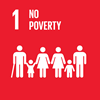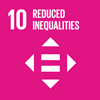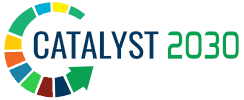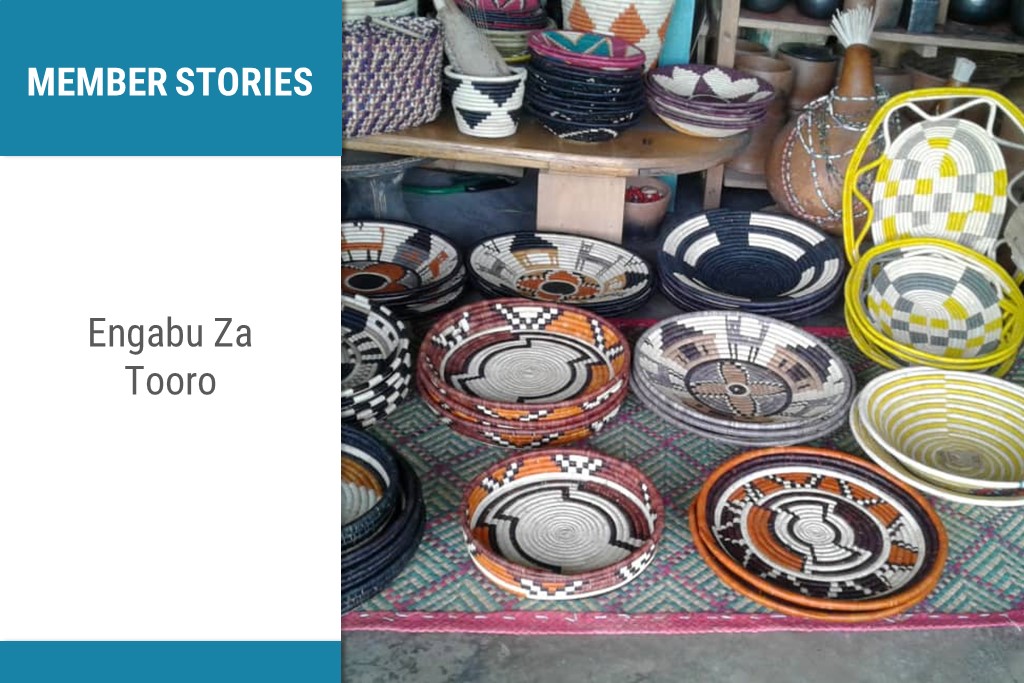Engabu Za Tooro (Tooro Youth Platform for Action) has developed a new model, Traditional Artisan Inclusion, to transform endangered artisan resources in Uganda into products and services. At the same time it is equipping traditional artisans and cultural practitioners with skills and access to markets. Engabu Za Tooro works with people whose only resources are their artisan practices, cultural materials and expressions. They are predominantly remote rural and slum urban women and youth, the elderly, the displaced and the chronically ill, who seek to earn a living from cultural and artisan activities.
Sustainable Development Goals targeted


Through their African Continental Crafts platform, the organisation’s incubated and Good Market-approved social enterprise, these artisans are connected to the global market.
The organisation was founded in 2000 by Stephen Rwagweri, a UNESCO culture expert and global facilitator, who had observed that cultural expression, materials and artisan practices constitute the most resilient resource in people, even when they are faced with devastating deprivation. This resource remains largely untapped as a tool for building resilience among people who experience extreme poverty. The organisation established a programme to reclaim endangered cultural resources, that were traditionally accessed by youth and women, and adapt them to mainstream production as a means of eradicating poverty.
“To date, 2,750 practitioners have been supported with training and links to capital and 740 viable cultural enterprises have been established in ten communities in Uganda. These include Batooro, Banyabindi, Basongora, Batuku, Banyoro, Batagwenda, Banyaruguru, Bamba, Babwisi, Bakonzo,” says Stephen. To do this work Tooro Youth Platform for Action partners with 44 clans, five kingships and cultural institutions in Uganda such as Tooro Kingdom, Bunyoro Kingdom, Busongora Chiefdom and culture departments in local governments.
Social entrepreneurs are known for finding solutions for society’s problems. What is the problem that you are addressing and what is your solution?
We are addressing market exclusion which leads to extreme poverty among traditional artisans and cultural practitioners, who have limited economic opportunities and whose artisan forms and skills are endangered. Due to their unique limitations – being illiterate, physically incapacitated, digitally excluded and operating in underserved contexts – these artisans are excluded from the creative manufacturing industry and the capacity development investments and models that could help them access markets.
To overcome these challenges, we designed a unique and scalable capacity development model customised to their limitations. It advances product development, design innovations and business and digital marketing solutions; thereby enabling market access and adaptation to the mainstream creative manufacturing sector. In this way we are driving equity and inclusion.
What do you see as the benefit of your Catalyst 2030 membership?
We are seeking collaborations that may lead to knowledge sharing, partnerships and the technical and financial resources required to consolidate and scale impact.
Are you collaborating with any other Catalyst 2030 members?
We have so far enrolled in Catalyst Market and are seeking to collaborate with Catalyst Co-Labs.

